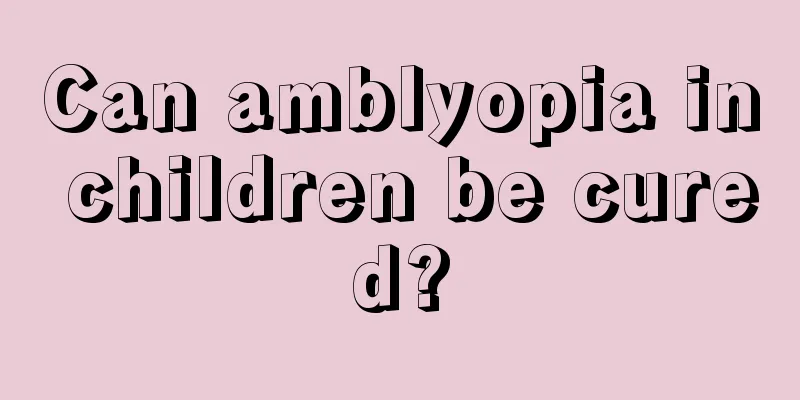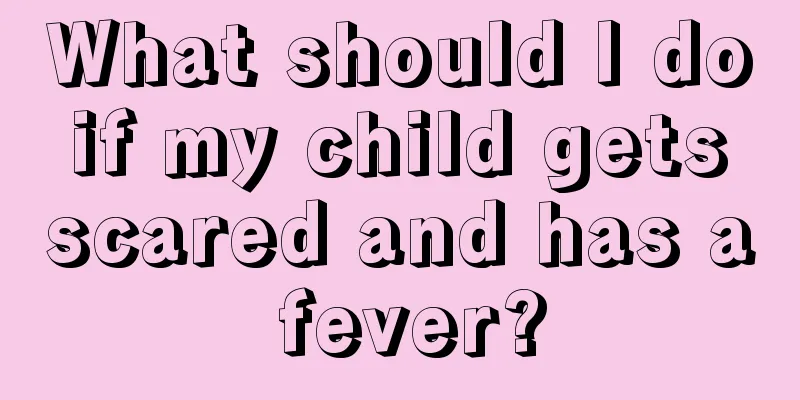Is there still hope for a cure for benign epilepsy in children?

|
Benign epilepsy in children is a common brain neurological sequelae. Trauma, congenital genetic relationships, hypoxia and damage in the brain are all causes of epilepsy. The symptoms of benign epilepsy are not too serious. There are only mild spasms and whole body convulsions. The onset lasts for a few seconds. As long as the medication is maintained and the care is good, the aggravation of epilepsy in children can be prevented, and epilepsy can also be cured. Prognosis and Prevention The incidence of status epilepticus in patients with epilepsy is 1% to 5%, and its mortality rate was 10% to 50% before anti-epileptic drugs were widely used. To date, its mortality rate is still as high as 13% to 20%, so full attention should be paid to its diagnosis and treatment. prevention Prevention of epilepsy is very important. Epilepsy prevention not only involves the medical field, but also concerns the whole society. Epilepsy prevention should focus on three levels: first, focus on the cause and prevent the occurrence of epilepsy; second, control seizures; third, reduce the adverse effects of epilepsy on the patient's physical, psychological and social. Prevention, early diagnosis and early treatment of the primary disease that causes symptomatic epilepsy syndrome are also very important. For those with genetic factors, the importance of genetic counseling should be emphasized. A detailed family investigation should be conducted to understand whether the patient's parents, siblings, and close relatives have epileptic seizures and the characteristics of the seizures. For some serious genetic diseases that can cause mental retardation and epilepsy, prenatal diagnosis or neonatal screening tests should be performed to decide whether to terminate the pregnancy or provide early treatment. Emergency First Aid Defining the diagnosis (1) Effective treatment requires a correct diagnosis and differentiation from myoclonus, tremor, spasm, chorea, decerebrate rigidity, decorticate rigidity, etc. (2) Electroencephalogram (EEG) examination; blood samples were drawn for the following tests: blood pH and blood gas analysis, blood glucose, blood electrolytes, transaminases, blood ketones, blood ammonia, white blood cell count and classification, and blood concentration of anti-epileptic drugs. (3) Recurrent epileptic seizures that persist for more than 30 minutes without recovery or each seizure lasts for more than 2 minutes should be considered status epilepticus. General treatment 1. After diagnosing this disease, immediately turn the patient's head to one side and clear the secretions in the mouth to prevent inhalation and suffocation. Place a tongue depressor wrapped in gauze between the upper and lower molars to prevent bites to the tongue and cheeks, and to facilitate breathing. Patients with airway obstruction should undergo tracheotomy as soon as possible. 2. Immediately monitor blood pressure, respiration, pulse and ECG. 3. Regular oxygen inhalation. 4. To prevent limb injuries, add bed rails. 5. Quickly establish an intravenous infusion channel, keep the infusion unobstructed, assess cardiopulmonary function, pay attention to the prevention and treatment of dehydration, acidosis, electrolyte imbalance, heart failure, etc., and maintain normal blood pressure. 6. Administer 25-50 g of glucose and 1100 mg of VitB intravenously. 7. Correct hypoglycemia, hyponatremia, hypokalemia, hyperglycemia, etc. 8. To control cerebral edema, 20% mannitol 250ml intravenous drip can be used appropriately. 9. Control body temperature, cool down physically or wear an ice cap. 10. When the attack is difficult to control, a gastric tube should be inserted to empty the stomach contents and prevent vomitus from being sucked into the trachea. 11. Use broad-spectrum antibiotics to treat and prevent infection. 12. Stop convulsions 13. A series of serious consequences of status epilepticus are caused by persistent or recurrent convulsions. Therefore, it is very important to control seizures in the short term. Intramuscular injection of anti-epileptic drugs has been shown to have unstable absorption and is difficult to achieve the purpose. Repeated intramuscular injections of small doses of drugs not only fail to control seizures, but can easily exceed the maximum dose. Intravenous injection of antiepileptic drugs is a feasible and effective method. |
<<: Quickly master these principles of fluid rehydration in children
Recommend
Why does my child sit up when sleeping at night?
In life, many children will suddenly sit up durin...
Why does my baby cough at night but not during the day?
Now many parents report that their babies cough a...
What food should I eat to remedy a child’s slow growth?
Parents are the most anxious when their children ...
Reasons why children don't eat
The physical health of children is one of the thi...
Is it normal for babies to stick out their tongue?
Children are the source of happiness for every fa...
What to do if a one-month-old baby is restless while sleeping
Normally, babies will feel restless when they are...
What is the daily diet for an eight-month-old baby?
Eight-month-old babies already have teeth, and br...
What to do if your newborn baby's poop smells sour
Every baby is a piece of flesh and blood from his...
Prevention and treatment of dry stool in infants
What is the reason for dry and hard stools in bab...
What are the symptoms of acute tonsillitis in babies?
Acute tonsillitis in children is a relatively com...
Treatment of otitis externa in infants
Infant otitis externa looks very scary. Recently,...
When do the baby teeth grow?
We have two sets of teeth throughout our lifetime...
What's wrong with the child's mental condition?
Children are not only the flowers of the motherla...
Is there a difference between milk spitting up and milk leakage?
Spitting up milk and spitting up milk are the sam...
What should children pay attention to when they have concussion?
For many parents, they sometimes worry that their...









